Balancing Grief: Lessons in Letting in and Letting Go
By Lilia Roman
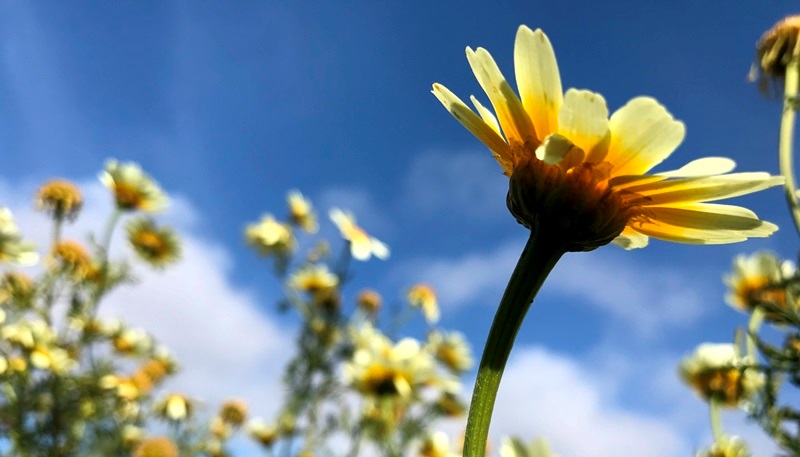
My father passed away five years ago. His transition came somewhat unexpectedly and, living away from my family, I never got to see him again in person. I remember the feelings that grabbed me. It was a new feeling; the feeling of great, unavoidable loss that very much felt like a part of me had also died. The sadness that struck my heart was such that my emotions could not be contained and the only thing that came easy was crying. I cried that first night, the days that followed and the weeks that followed. The crying was unexpected, it happened anytime, any moment, until I learned to live with my father in different ways and finally reconciled with the fact that, in this life, I shall never see him again in his physical form.
Looking back now, I remember how I coped, or how difficult it was to find the way to cope, with that great loss. That experience made me see life from a different angle. Death was not final but instead a reflection of my life’s deeper perspective. As a child I experienced impermanence with the loss of a pet, a far distant relative, or an acquaintance, but the death of a parent is a very unique experience. Our parents are our first link to this world; they are the reason why we are here and, because of that, our lives are intrinsically connected.
In my growth, I see our impermanence with more clarity. Losses are constant; as the great spiritual Buddhist teacher, Ajan Chah, says: “the only thing permanent is impermanence”. However, within the grief of this realization, we can also find a sense of perspective and bring peace, equanimity and joy to our lives as we learn to accept our changes. When we become more aware of our own selves, we let go of the illusions and mental conditioning that want to keep us trapped in the past, future, or to ideas of what we are or are not. The feelings of loss and grief may never go away, but as time goes on and circumstances become challenging, we hope to find deeper and better ways to deal with the losses and, ultimately, with our own transition. How can we achieve this? I believe it is by cultivating the tools that can help us resurrect the fullness of our bodies, the indestructible wholeness we are born with that loses form and clarity when we go through pain and suffering.
Through my own grieving process, I have learned that grief needs space, attention, and to be honored and fully expressed. As we enter the first stages of loss, honoring the experience and creating space for that experience prepares our bodies for the different stages of grief, and ultimately brings us to where we can heal and experience joy and a deeper connection with life.
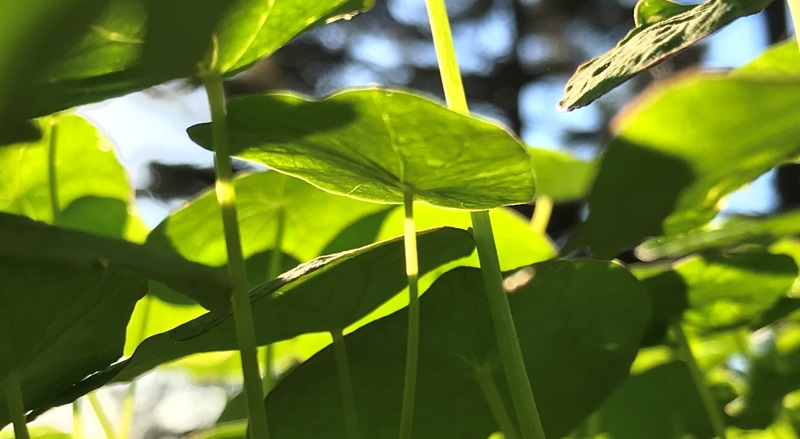
The days following my father’s death, my physical energy was extremely low and I was hardly able to get myself out of bed. Depression was crawling in. I noticed my chest, upper back, belly and hips becoming tight and my head heavy. I called upon my healing tools of yoga, breath practices, meditation, nature walks, soothing baths with rose petals, limpias (energetic cleansings), and my tears. On my altar, I placed my father’s picture as the central figure, surrounded by the elements of water, fire, and air, candles, poems, and the photo of my living mother. My dear friends and community held space for my grief to unfold. Eventually, I learned to live with my father in a different, and possibly, better way. My connection with him deepened. I talked to him as I sat in front of my altar. I told him things I wished I had said to him in person; my talks with him were gratifying. I felt listened to and grateful for the opportunity. All these practices and rituals were important in helping me confront and release the pain that could stagnate my body and mind.
Giving myself the space and time to recognize the loss taught me to recognize the deeper layers of my being. It allowed me to go inward and see that loss as a significant layer. I realized I was not only expressing the loss of my father, but many other losses, as well. This allowed me to eventually find comfort and peace in the hollowness and solitude of life and its unavoidable cycles. Space and solitude can bond so one can witness oneself without masks and judgements. Solitude has allowed me to see myself beyond the physical and has led me to experience great depths of freedom, self-observation, as well as profound love.
As we become more aware of suffering and accept that it is part of life, we can also cultivate better tools to help us manage life with more ease and acceptance. Perhaps, next time we experience loss, we may come out of the experience stronger and wiser by transforming our pain into deeper wisdom and maturity. We then realize suffering is part of the human experience and we learn to use its powerful energy for deeper growth and compassion for ourselves and others.
Accepting grief does not mean we live our life with sadness. Acceptance teaches us to live life each day with much more joy, gratitude and a profound love for life and for those who are physically living. Loss may be one of the greatest teachers; it can teach us to love ourselves unconditionally and to bear witness to our growth, spiritual depth, transitions, and honor our precious life cycles.
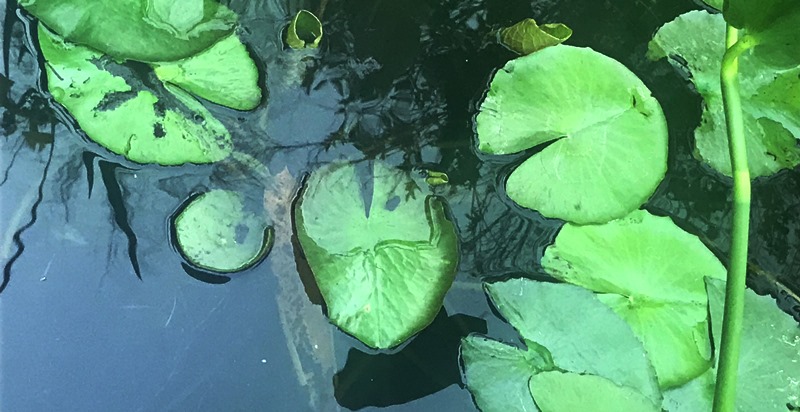
There is no right or wrong when it comes to confronting grief. People confront grief in different ways given their cultural or spiritual practices. What is important is that we confront it without going into self-destruction. Spiritual teacher and founder of iRest Yoga Nidra, Richard Miller, says when we have no tools to deal with challenging times we can get hijacked by our emotions. Negative emotions can enter our body and suddenly we are caught in the default mode. We cannot think through about how to move through the emotions that come from trauma, stress, and grief since, both, the amygdala and the hippocampus, are greatly impacted by severe shock. The amygdala is responsible for our emotions, sense of survival, and memories. The hippocampus gives us a sense of perspective and overview and the consequences of our actions. Hence, learning to be compassionate and gentle with ourselves is vital. With compassion and gentleness, our body softens and our hearts expand and release, allowing room for something new to flourish.
The losses we experience throughout life can be the loss of a relationship, a job, a home, our youth, health, pets, and so on. Mindful practices such as breathing, yoga, meditation, aromatherapy, and sound, can help us move the energy of fear and connect to our body sensations as we stretch, feel, sense, and learn to relax our muscles. Through these practices, we learn to see ourselves as both a physical and spiritual body. We use the breath to become present and to experience a feeling of safety and comfort in our being. Connecting to body sensations is healing and prevents the separation of self which can occur when experiencing physical and/or emotional suffering. Body sensations can allow us to get out of our heads and negative thinking, and foster a deeper connection to Earth and Spirit. Sensing our bodies and cultivating mindfulness in our lives can help us process our emotions, ground ourselves, and trust in our own path and human experience. Through these practices, we can reconnect to ourselves and support our own healing journey and growth.
Healing Practices:
Movement, Body Touch and Restoration
My healing practices can be different each day. As emotional pain tends to hold space in the physical body, I may do a gentle yoga asana and breath practice to move and ground my energy. Some findings confirm that yoga, through the practice of body movement, breathing techniques and meditation, can lead people into greater self-awareness and help manage anger, depression, and anxiety. I may also do pure body restoration: get a massage from a trusted person, or go into a hot tab prepared with salts and roses. I may also do a self-limpia, or energetic cleanse with roses. Mexican healing practices use roses and/or herbs to help people cultivate self-love, a sense of belonging, and balance the elements within. A Limpia is a sacred ceremony and a way to help the body-spirit to release emotions and “bring back the soul” to a person’s body. The medicinal herbs Curanderos (Healers) in Mexico have traditionally used are basil, epazote, rosemary, and rue; these are also the herbs that talk to me and I connect to the most. For your own Limpia, you may use the medicinal herbs you know and like best. According to Curanderos , and Ayurvedic doctors, feeling our own bodies, the long bones, our main joints and muscles, starts creating a calming effect in the nervous system. For a Mexican Curandera or Curandero, the sense of touch is of utmost importance in healing trauma and grief. “The way we heal is to start engaging all of the senses: the sense of touch, smell, sight, sound and smell”, says one of my teachers, Midwife and Mexican healer, Enriqueta Contreras, a powerful Zapotec woman from the mountains of Oaxaca.

Aroma Therapy and Body Oils
Some of my favorite essential oils* that have significantly supported me in my healing are: Grapefruit, Orange, Lemon, Frankincense, Myrrh, Rose Geranium, Lavender, Cinnamon, Sandalwood and Cedarwood. Citrus oils are uplifting and colorful; they help us cultivate our inner joy. Resin oils are grounding, centering and spiritually uplifting. Flower oils are sweet, soothing and comforting. Wood oils help us cultivate our inner strength. I normally use a diffuser at home, or in a classroom, and dilute a few drops of oil in water. A good essential oil diffuser disperses the fragrance thoroughly. The small molecules in the essential oil move through the air so that they may enter the body. When we inhale the scent, the many receptors in our mucus membrane take the smell, identify it and send sensory stimulation messages through the brain. The fragrance also helps to clear and cleanse the energy in the room. I also place a drop of my favorite oil on a piece of cloth to take with me whatever I go. This helps me balance my energy throughout the day.
Massage body oils such as Lavender and Tranquil Rose help me cultivate deep relaxation. One of my rituals before bed is to rub those oils on my feet, ankles, knees, hips, belly and arms. This nightly practice brings me peace and helps me sleep much better which impacts my energy the next day. A short meditation and breath practice before bed also supports my process of letting go of worries, distractions and expectations.
* Please do your research when using essential oils as it may create allergies in certain people. For example, I am very careful with Cinnamon, which is sweet, invigorating and warming but when applied topically, it can burn my skin.
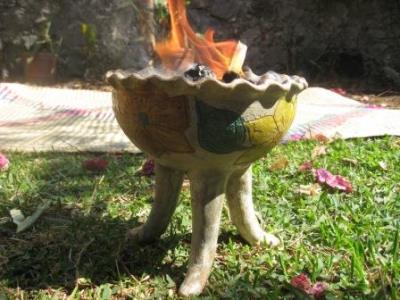
Community
How important is our community? Community is crucial to our lives when we are trying to recover from any great loss. Our community and friends can hold space for our grief and listen with love and compassion. During grieving times, space and solitude are needed but we must remember that our community can help us navigate, hold, and process our challenging times.
Whatever you choose to do, your practice and space to hold your grief should become sacred. It should be a place where you allow yourself to feel whatever you may be feeling and where you can make use of your tools to help you reconnect to your senses and to the reality and profound teachings of the present moment. Practicing a daily ritual will help you move grief and appreciate the magic of your body and life itself. Only until then may you be able to feel the joy of being in your own body, laugh and fully enjoy your life.
Megan Devine, who wrote the book It is OK that You’re not OK after the death of her 39-year-old partner, states that being “encouraged to ‘get over it’ is one of the biggest causes of suffering inside grief”. She agrees that rather than trying to “cure” pain, the goal should be to minimize the suffering, which “comes when we feel dismissed or unsupported in our pain, with being told there is something wrong with what you feel”.
So, with much love, gentleness, and patience, give yourself permission to honor your grief by creating the space, praying, having a heart to heart conversation with your loved one who has departed or is departing, or perform a ritual for something that has ended. Living a life deeply connected to your body, observing and honoring your emotions, your breath, and honoring all natural cycles, will allow you to experience the unconditional and eternal love that becomes present when you embrace the entire breadth of your human experience.
It has been five years since my father left his body. I am closer to him more than ever. I choose to remember his wisdom, his strength, his discipline, his love. I have fully embraced the experience of his transition and I live connected to the strength of his spirit and to the spirits of all my ancestors. In this moment, I choose to cultivate resilience, physical strength, contentment, and live life as a human being, giving the best of me to this world, my communities, friends and family, because, this is it! As the great spiritual teacher Thich Nhan Hanhn says, “We do not have to wait ten years to experience happiness and heal.”
Today you still have your breath. Use your breath to expand and to open your heart to the full experience of being human and embrace the journey. You may find that your suffering is the crack through which the light enters, and it can also be a great source of immense happiness and unbounded joy.
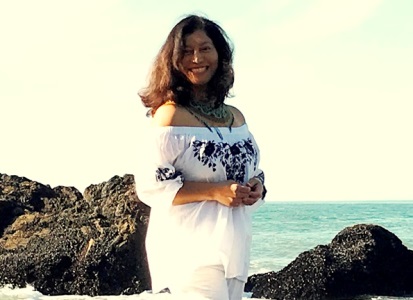

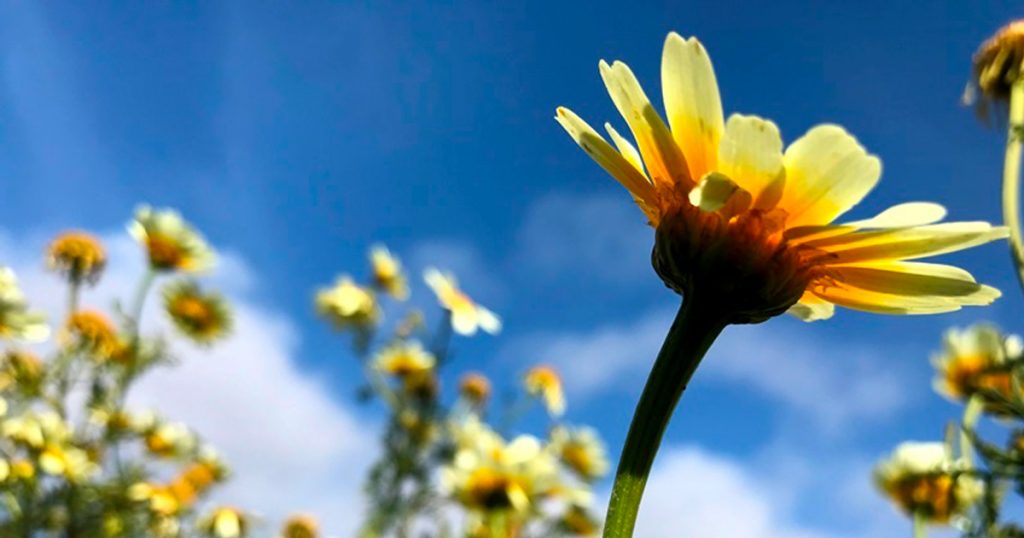
Oh Lilia Que profundo❣️En 2012 mi mama murio , tuve breast cancer y mi hija Annalee matriculo y salio a la universidad y siga su vida. Gracias un mil gracias por compartiendo su Camino y su .sabaduria Mi creencia y es vivir hoy y acceptor los regalities de cada dia. Eres una inspiracion a mi… Gracias
Querida Gillian,
Muchisimas gracias por sus lindos comentarios. Es un placer saber que mi experiencia y perspectiva pueda ayudar a otras personas. Qué gusto saber que le gusto mi perspectiva. Ojalá le ayude a sanar también.
Un abrazo y ojalá nos veamos pronto.
Con cariño,
Lilia